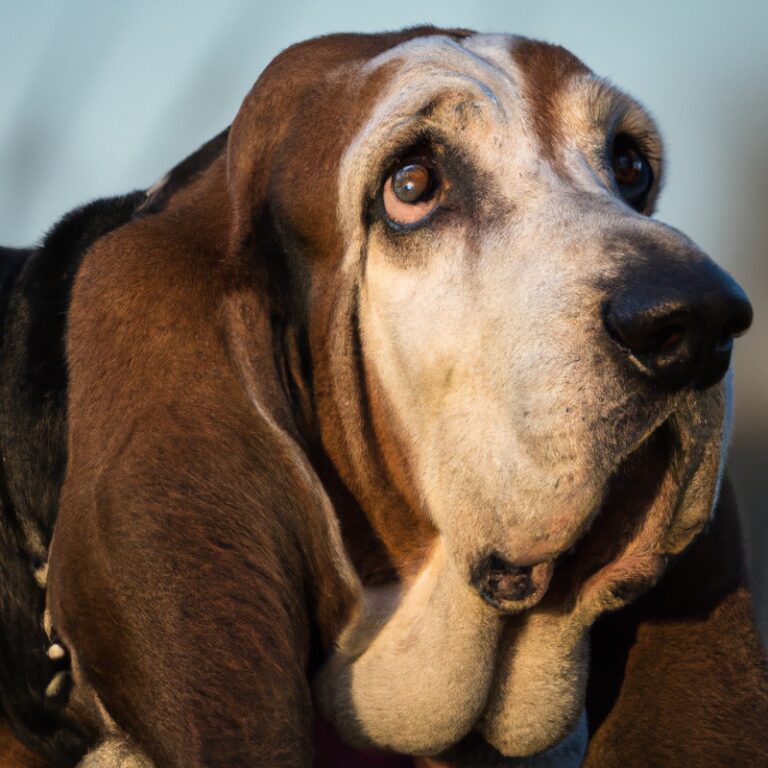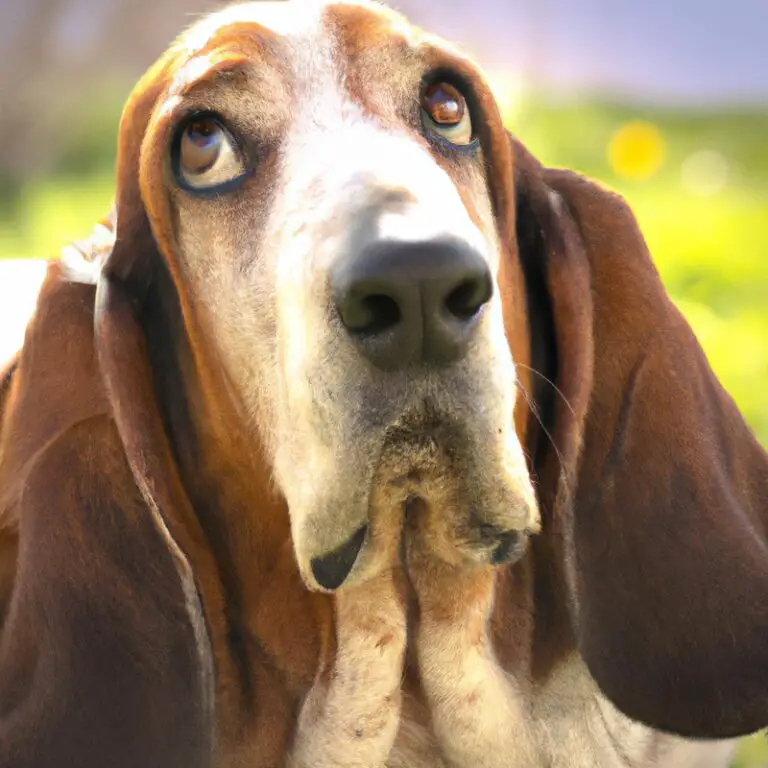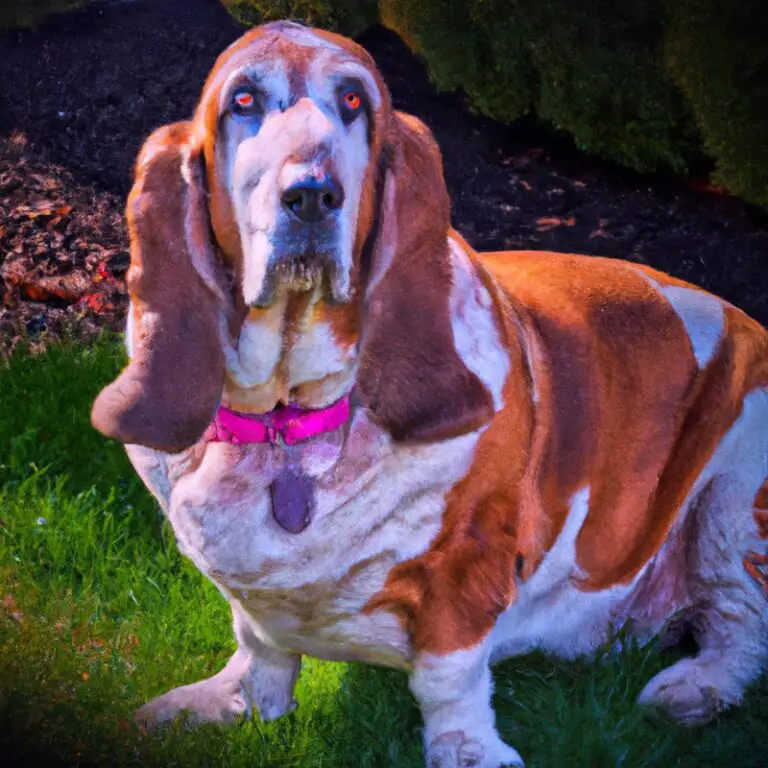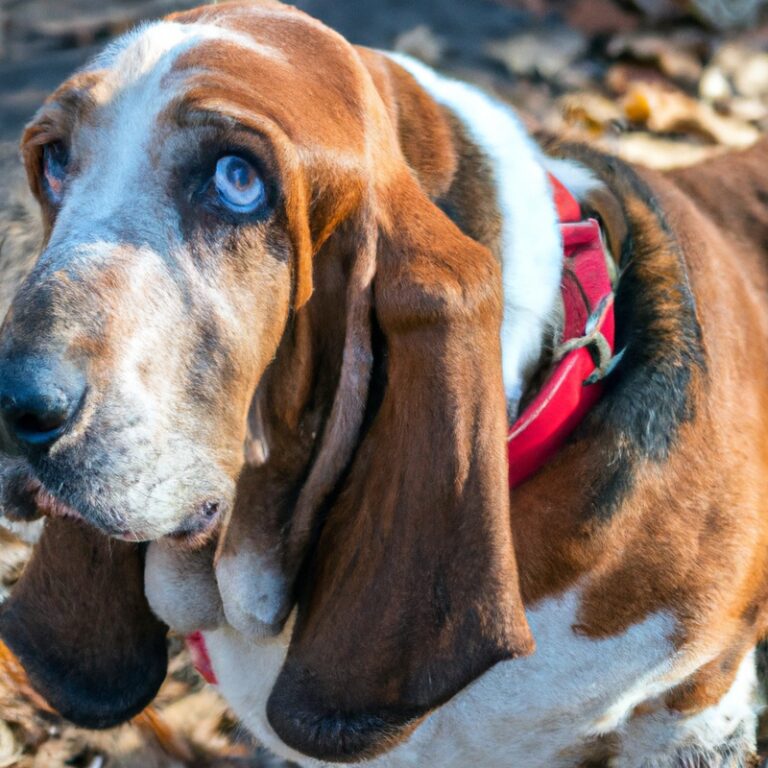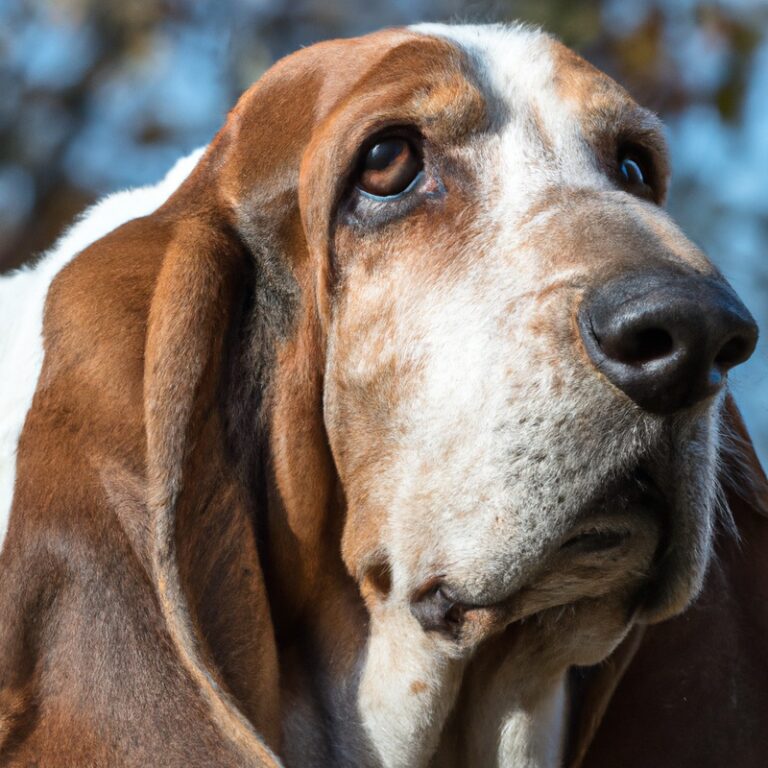Can Basset Hounds Be Trained To Be Guard Dogs?
Key Takeaways:
- Basset Hounds can be trained to some extent, but their natural instincts make them unsuitable as guard dogs.
- While they possess a strong sense of smell, Basset Hounds lack the protective and intimidating traits required for effective guard dog training.
- They are gentle and friendly by nature, making them better suited for companionship and emotional support roles.
- Selecting a breed specifically bred for guarding instincts would be a more suitable choice for those seeking a reliable guard dog.
Imagine having a guard dog that not only protects your home but also charms your guests with its adorable droopy ears and soulful eyes.
You might be wondering if Basset Hounds, with their laid-back and gentle nature, can be trained to fulfill this important role.
As an expert in dog training, I’m here to shed light on this intriguing topic.
In this article, we’ll explore the temperament, physical attributes, and exercise needs of Basset Hounds, as well as the traits and skills required of guard dogs.
We’ll also delve into the training techniques and considerations for turning these lovable hounds into reliable guardians.
So let’s dive in and discover whether Basset Hounds can indeed make ideal guard dogs!
| Question | Answer |
| Can Basset Hounds be trained to be guard dogs? | No, Basset Hounds are not typically suitable for guard dog training. |
The Nature of Basset Hounds
Overview of Basset Hounds’ Temperament
Basset Hounds are known for their friendly and easygoing temperament. They are generally affectionate, patient, and good-natured dogs.
Bassets are also quite relaxed and enjoy spending time with their owners.
Despite their laid-back nature, they can be stubborn at times, which can affect their trainability. It is important to approach their training with patience and consistency.
Bassets may not make the best guard dogs due to their friendly and non-aggressive demeanor.
However, they can still serve as excellent companions and family pets.
Physical Attributes of Basset Hounds
Basset Hounds are known for their unique physical attributes.
They have a long body, short legs, and droopy ears that can reach the ground.
Their wrinkled forehead and sad expression make them easily recognizable.
With a sturdy build and a weight ranging from 40 to 65 pounds, Basset Hounds may not be the fastest dogs, but they have a strong sense of smell.
Their extraordinary noses enable them to track scents efficiently, which is why they excel in activities such as scent detection and trailing.
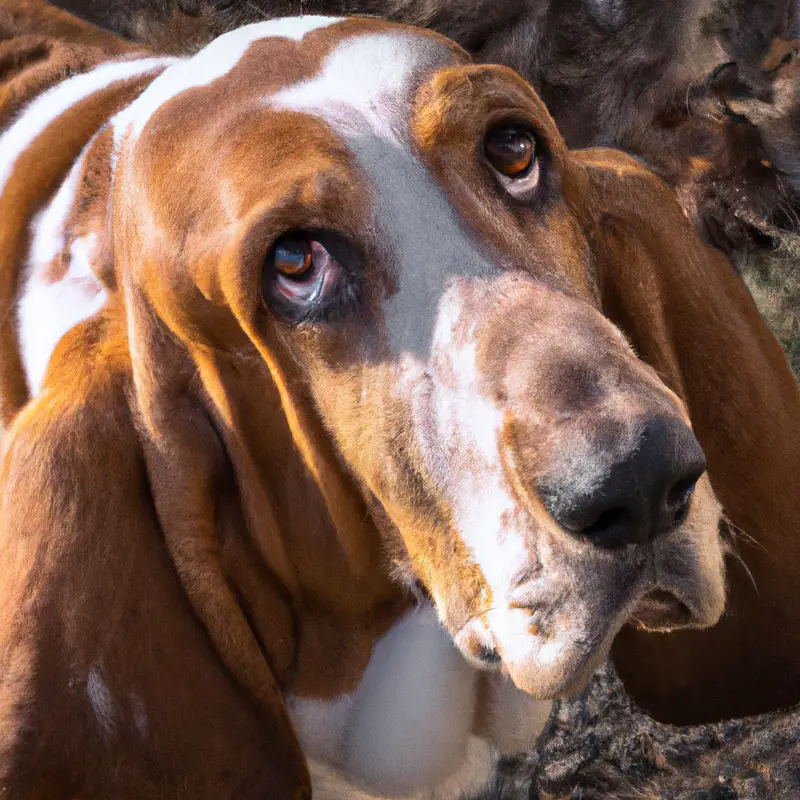
Exercise and Mental Stimulation Needs of Basset Hounds
Basset Hounds have moderate exercise needs due to their low energy levels.
Daily walks and playtime in a secure area are sufficient to keep them physically fit.
Mental stimulation is also important, as Bassets are intelligent but prone to boredom.
Puzzle toys, obedience training, and scent games can help engage their minds.
Regular exercise and mental stimulation will contribute to a happy and healthy Basset Hound.
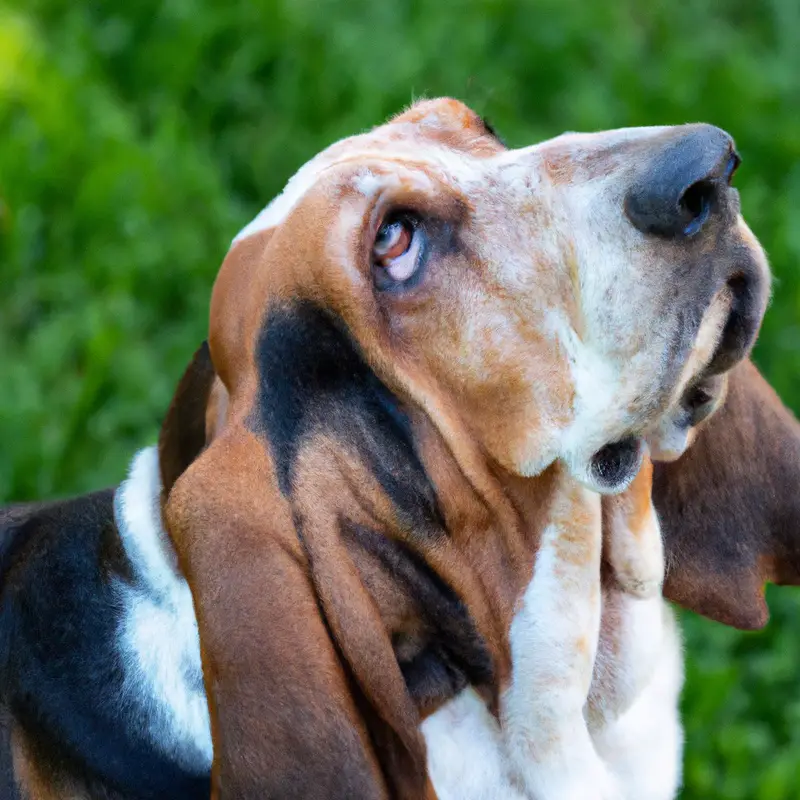
Characteristics of Guard Dogs
Traits and Skills of Guard Dogs
Guard dogs possess a specific set of traits and skills that make them effective at protecting homes and properties.
Some common traits include loyalty, intelligence, and a strong protective instinct.
They are also highly trainable and responsive to commands.
Skills that guard dogs usually possess include advanced obedience training, the ability to assess threats, and the skill to intimidate intruders through their presence and bark.
Additionally, many guard dogs are trained in apprehension techniques to physically subdue intruders if necessary.
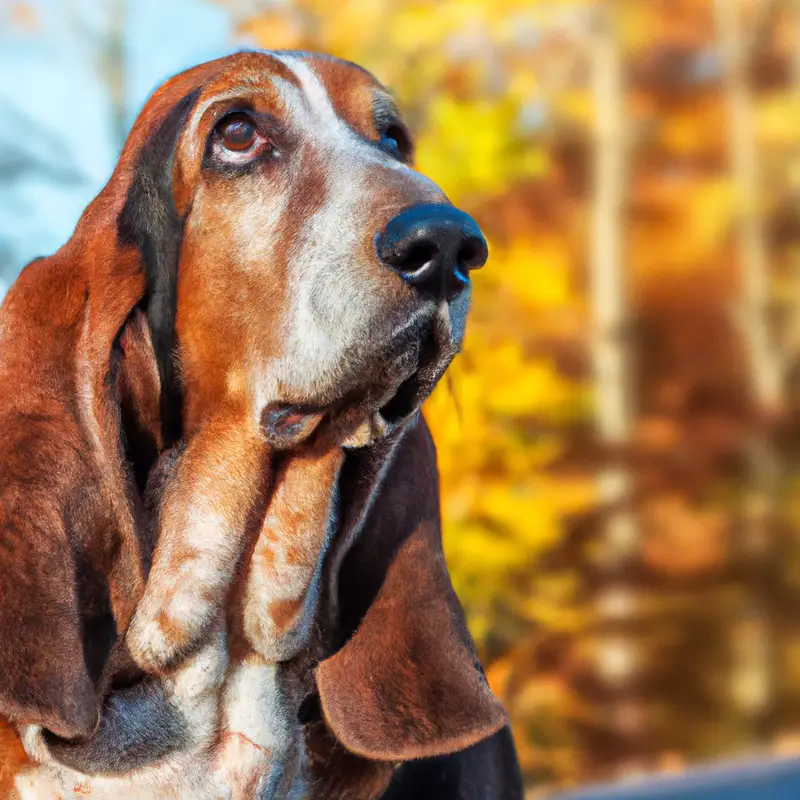
Breeds That Are Commonly Used as Guard Dogs
Some breeds are commonly used as guard dogs due to their natural instincts and protective nature. These breeds include German Shepherds, Rottweilers, Doberman Pinschers, Boxers, and Bullmastiffs.
German Shepherds are known for their loyalty and intelligence, Rottweilers for their strength and territoriality, Dobermans for their alertness and fearlessness, Boxers for their protectiveness and energy, and Bullmastiffs for their size and instinctive guarding abilities.
These breeds have the characteristics necessary to excel in guard dog roles and are frequently chosen for their ability to provide security and protection.
Training Basset Hounds as Guard Dogs
Assessing Basset Hounds’ Suitability as Guard Dogs
Assessing a Basset Hound’s suitability as a guard dog requires considering their temperament, physical attributes, and instincts. Bassets are generally friendly and laid-back, making them less inclined to be aggressive guard dogs.
While they have a strong sense of smell, their short legs and heavy build limit their agility and speed.
Bassets may not have the necessary traits and skills commonly found in guard dog breeds. Consulting professional trainers and breeders can provide valuable insights into their potential for guarding roles.
Basic Obedience Training for Basset Hounds
Basic obedience training is essential for Basset Hounds. Start with positive reinforcement methods, like treats and praise.
Teach basic commands like sit, stay, and come.
Consistency and patience are key during training sessions. Keep training sessions short and engaging to avoid boredom.
Use clear and simple cues, combined with rewards, to reinforce desired behaviors.
Regular practice and repetition will help Basset Hounds become well-behaved and obedient companions.
Socializing Basset Hounds for Guard Dog Roles
Socializing Basset Hounds is essential for preparing them for guard dog roles.
Here are a few tips:
- Expose them to various environments and situations from a young age. This helps them become comfortable in different settings.
- Introduce them to different people, including strangers. Bassets can be territorial, so socializing helps them distinguish between friendly visitors and potential threats.
- Encourage positive interactions with other animals. This helps minimize aggressive behavior and prevents them from viewing all unfamiliar animals as potential intruders.
- Provide regular opportunities for play and exercise with other dogs. This helps them learn appropriate social behaviors and develop a friendly disposition.
Remember, Basset Hounds may not possess the same natural instinct or physical intensity as other guard dog breeds.
While they can be trained to be watchful and protective, their temperament is generally more laid-back and friendly.
Specialized Guard Dog Training Techniques for Basset Hounds
Training Basset Hounds as guard dogs requires specialized techniques.
Here are a few strategies that can help:
- Focus on scent tracking: Basset Hounds have an excellent scenting ability. Train them to track specific scents and alert you to potential threats.
- Teach defensive barking: Bassets have a deep, booming bark. Encourage this behavior and train them to bark on command, alerting you to intruders.
- Use positive reinforcement: Bassets respond well to positive reinforcement. Reward them with treats and praise when they exhibit guard dog behaviors.
- Incorporate obedience training: Basic obedience commands are important for any dog. Teach your Basset Hound to sit, stay, and come when called, which can enhance their overall obedience and guard dog potential.
Remember, not all Bassets are suited for guard dog roles.
Seek guidance from professional trainers or breeders to assess your dog’s suitability and tailor the training for their specific needs.
Limitations and Considerations
Challenges of Training Basset Hounds as Guard Dogs
Training Basset Hounds to be guard dogs can be challenging due to their independent nature and lack of inherent protective instincts.
Bassets are known for their friendly and laid-back demeanor, making them more inclined to greet strangers than act as a deterrent.
Additionally, their physical attributes, such as their short stature and slow movements, make them less intimidating.
It would require consistent training, socialization, and specialized techniques to overcome these challenges.
It’s important to assess if a Basset Hound’s temperament and characteristics are a good fit for the role of a guard dog before embarking on training.
Alternative Roles for Basset Hounds in Home Security
Basset Hounds may not be the ideal choice for traditional guard dog roles, but they can still play alternative roles in home security. Here are a few ways they can contribute:
- Alerting: Basset Hounds have excellent hearing and a strong sense of smell. They can alert you to potential intruders by barking or displaying unusual behavior.
- Deterrence: While not necessarily intimidating, the presence of a Basset Hound can still discourage trespassers due to their size and loud barks.
- Companionship: Basset Hounds make great companions, providing emotional support and a comforting presence, which can enhance overall home security.
- Family watchdogs: Basset Hounds have a strong protective instinct towards their families. They can be relied upon to warn you of any suspicious activity or strangers approaching your property.
Remember, Basset Hounds may not be guard dogs in the traditional sense, but they can still contribute to home security in their own unique way.
Consulting Professional Trainers and Breeders for Advice
If you’re considering training a Basset Hound to be a guard dog, it’s always a good idea to consult with professional trainers and breeders for advice.
These experts have the knowledge and experience to provide guidance on whether Basset Hounds are suitable for guard dog roles and can offer valuable insights into their temperament, abilities, and training requirements.
They can assess your specific situation and help you make an informed decision.
Consulting professionals in the field will ensure that you receive accurate and reliable information to guide you in training your Basset Hound.
Final Verdict
While Basset Hounds possess some qualities that could potentially make them guard dogs, their temperament and physical attributes often make them unsuitable for this role.
They are friendly, laid-back, and lack the assertiveness and aggression typically required of guard dogs.
However, with the right training and socialization, Basset Hounds can still contribute to home security by alerting their owners to potential threats.
It is essential to consult professional trainers and breeders for guidance on harnessing their natural instincts and finding alternative roles that align with their unique characteristics.



